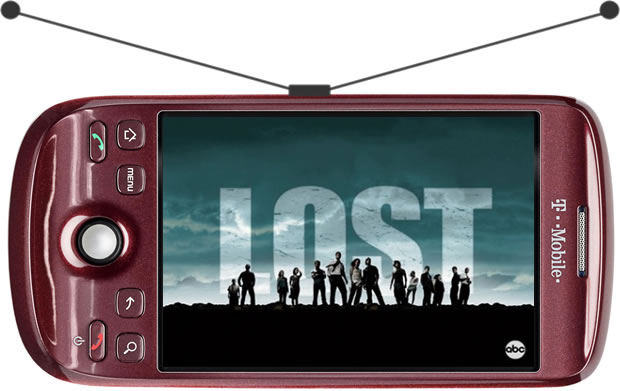Broadcast, Wi-Fi Take Wind Out of FLO TV Sales
MULTIPLE CITIES: The broadcast industry hammers away at its mobile DTV plan while current subscription-based player Qualcomm considers getting out. New research from Juniper Research suggests why.
“A new study has found that disappointing adoption levels of existing mobile TV services--allied to competition both from streamed mobile services facilitated by the growing prevalence of Wi-Fi, and from mobile reception of free-to-air terrestrial networks--has lead to growing disillusionment within the industry,” Hamphsire, England-based Juniper said today.

Juniper’s latest report on the mobile TV sector predicts that global mobile TV subscriptions on dedicated networks won’t exceed 10 million until 2013 at the earliest. The firm’s count comprised video transmitted via DVB-H, DMB, CMMB and MediaFLO, (the transmission scheme for Qualcomm’s FLO TV). On the other hand, 3G, 4G and Wi-Fi-enabled mobile TV subscriptions are expected to reach 180 million in three years.
Qualcomm’s revelation that FLO TV is on the table is understandable, Juniper researcher Dr. Windsor Holden said. Qualcomm chief Paul Jacobs said during the company’s third-quarter earnings call that “we’re engaged in discussions with a number of partners regarding the future direction of the [FLO TV] business.”
MediaFLO has run a gauntlet since its introduction. Verizon adopted it for VCast in 2007--two years into frustrating buffer times early VCast subscribers experienced downloading video over Verizon’s data network. Holden said the delayed DTV transition also hurt FLO TV, and the $10 to $15 monthly subscription rates set by carriers was too much.
“The delay in analog switch-off prevented it from gaining national coverage,” he said. “It’s partners set the service price at too high a level, which put off potential customers. When you factor in likely free-to-air competition over ATSC-M/H in the medium term, then clearly MediaFLO faces a difficult future in the U.S.”
Juniper said MediaFLO “may have better long-term prospects in Asian markets such as Japan and Taiwan, and that its networks--and those of other mobile broadcast service providers--may be better served focusing on delivering a wide range of data services rather than as acting as pure mobile TV distributors.”
Qualcomm has never revealed subscriber numbers for FLO TV, available on Verizon and AT&T wireless networks. MobiTV, which works over data networks and was thus not included in Juniper’s count, said recently it passed 10 million users worldwide. comScore puts U.S. mobile TV users at just over 2 percent of the nation’s 285 million cell-phone subscribers, or around 5.7 million.
Meanwhile, broadcasters haven’t announced their mobile DTV business model. Scottsdate, Ariz., researcher In-Stat nonetheless predicted recently that broadcast will drive the mobile medium.
“Global 3G network development is driven by the popularity of data services such as social networking and texting,” In-Stat’s Norm Bogen said. “Mobile TV stands to leverage this demand.”
Broadcasters have been working on mobile DTV for more than two years. Little news of their progress has emerged since a consortium of stations and networks announced an interim executive leadership team in June. The consortium, dubbed “Mobile Content Venture,” included Fox, NBC, ION and Pearl, a separate entity comprising nine station groups.
The MVC’s charter is to figure out the business model for mobile DTV. The primary question is pay versus free. Broadcasters have talked about the competitive advantages of having a free service since they started pursuing mobile DTV. The signal is transmitted similarly to regular broadcasting, so few plant modifications are needed and capital overhead is minimal. Broadcasters also have local content unavailable on established subscription-based mobile TV services.
Free and local are considered the main marketing pillars of mobile broadcast DTV. However, as the network chiefs consider online pay walls, insiders say free mobile DTV is not inevitable. Reports today indicate CBS chief Les Moonves is negotiating with Hulu, the online TV platform co-owned by ABC, NBC and Fox. Hulu launched a premium subscription service in June--Hulu Plus, for $10 a month. Reuters says Moonves likes the pay model.
“Our goal is to get paid for our content in as many different ways as we can without hurting the mother ship,” Moonves said. “The key here is flexibility.”
NBC chief Jeff Zucker also told The Wall Street Journal this week that the network was considering charging for online content.
“I do not think that it is a foregone conclusion that content should be free on the Internet,” he said.
Get the TV Tech Newsletter
The professional video industry's #1 source for news, trends and product and tech information. Sign up below.
